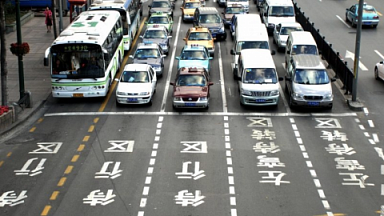On 7 December 2022, the National Health and Sanitation Commission issued a notice in which it said it would relax the COVID restrictions. This was received as good news by rail freight professionals, which explained what the lockdown had meant for them during the 6th European Silk Road Summit held in Duisburg that day and the day after.
Manufacturing is under pressure
Rail freight professionals intevriewed stated that the strict measures had posed considerable challenges to the production of the manufacturing industry. And this has directly led to the imbalance of production and sales in the supply chain, which in turn affected the China-Europe Railway Express.
Jiang Chongyan, general manager of Bangda Tianyuan, said: «Large factories generally plan according to quarterly or even semi-annual schedules. Some smaller factories may schedule according to monthly plans. However, due to pandemic, the entire production line cannot be started. It also had a great impact on the delivery of orders.»
At the same time, Lei Ming, the China representative of Max Container, said that the biggest challenge of the shutdown for the factory is the loss of workers. «If a worker has not worked for a period of time, it will be very difficult for him to return to work. Once a furnace is allowed to cool down, it may also take some time to be re-fired. It will take a week or a month.»
Customs inspection extension
In addition to the unbalanced production and sales in the supply chain, which led to a failure to provide the goods in time, customs inspections also faced huge challenges in the prevention and control of the coronavirus. Yang Jie, international affairs liaison officer of the International Train Consulting Service Center of the China Communications and Transportation Association, said that the impact of prevention and control measures on China-Europe trains is mainly concentrated at ports.
Affected by strict disinfection and other measures, the operating efficiency of imported trains at ports has been impacted. The delay of the import train may at the same time prevent raw materials from arriving at the factory on time, which has affected the production of the manufacturing industry from another aspect.
However, Chris Liu, account manager of Taihua International Logistics Co., Ltd. Zhengzhou Office, said: «The Chinese government has also introduced a lot of policies and safeguards to ensure that the production of some key enterprises will not be interrupted. Overall, the impact is not particularly significant.»
Return to normal
The introduction of the new policy has created great convenience for the industry, both in terms of goods production and customs inspection. Sheng Mingwen, a freight forwarder in Poland, revealed that with the relaxation of the rules, the number of containers in Malaszewicze increased compared with last month. He said that he is optimistic about the volume of westbound trains, and «has planned to increase the number of trains to Europe».
Similarly, Frank Shao from Tiedada said he was positive about the policy change. Trains never stopped running, but it was definitely more challenging, he and Igor Tambaca from RailBridgeCargo agreed during a recently held webinar. Although a volume boost is expected, they do not expect this to result in a backlog or congestion on the network.



